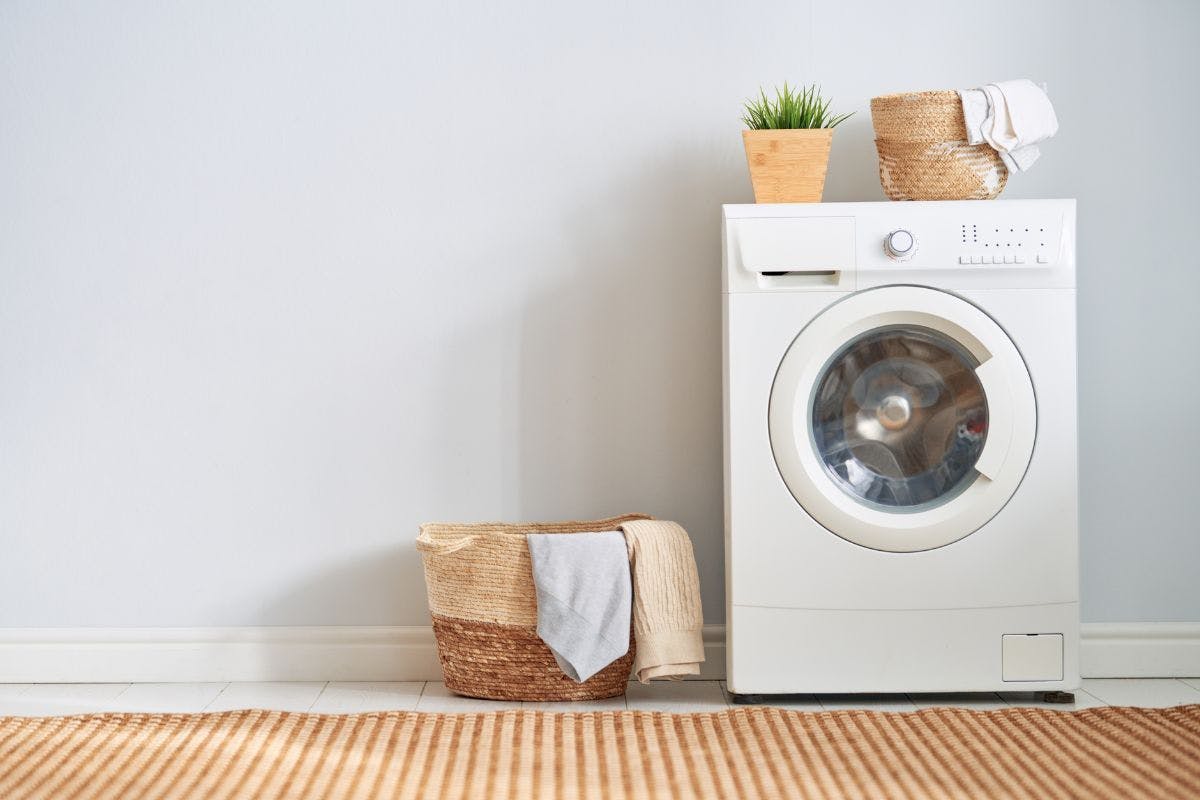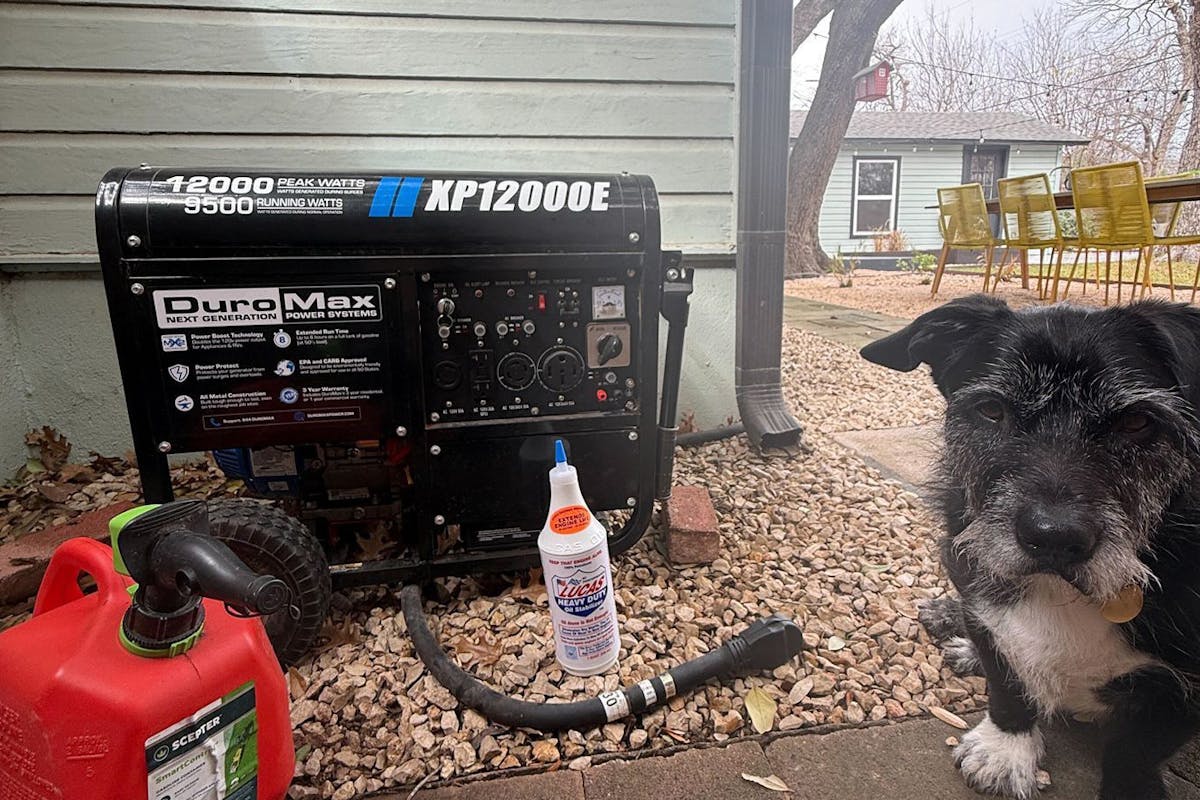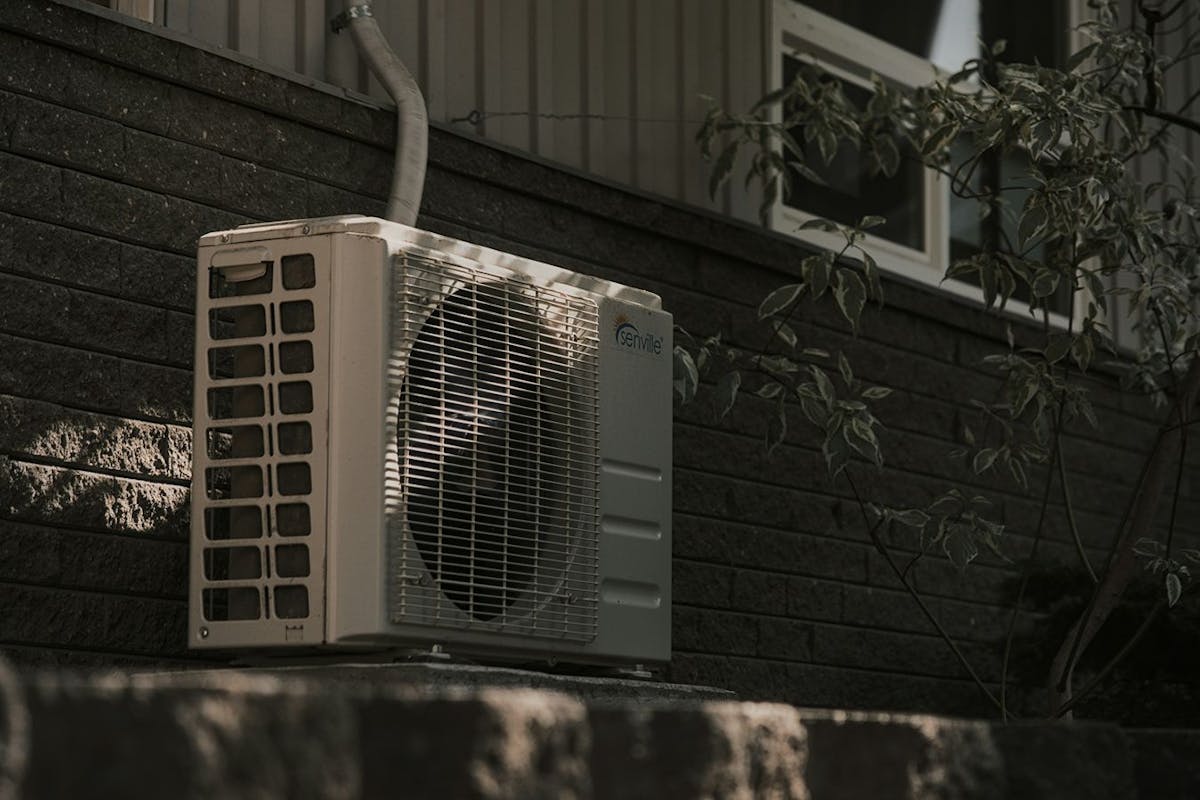Our Guide to the Best Energy-Efficient Washing Machines
Last edited
Author
Andrew Blok
Electrification and Solar Writer and Editor
Editor
Andrew Giermak
Solar and Electrification Writer and Editor

While it doesn’t compare to heating and cooling, laundry is still a major energy user in most homes. While there are plenty of simple laundry tips which can cut your energy use and bills, you still have to do laundry. An energy-efficient washer and dryer may be another way to save for years to come. When it comes to choosing a new energy-efficient laundry machines, smart capabilities, water consumption, two-in-one washing and drying, and more features can factor into your decision.
Here are Palmetto’s picks for the best energy-efficient washing machine brands and models on the market now.
See how much you can save with home energy changes
Best energy-efficient washing machines
To find the most energy-efficient and best washing machine in each category, we started with Energy Star rankings. We weeded out machines not widely available and checked specs and user reviews to make sure machines had more than just energy efficiency going for them. Each of these machines have a matching Energy Star-rated dryer. Here are our favorites.
Best washing machine for energy efficiency: Electrolux ELFW7738
This Electrolux model is certified by Energy Star. It is the most efficient machine by Integrated Modified Energy Factor (IMEF). Its mark of 3.2 cubic feet per kilowatt-hour per cycle is the highest on the list. It’s also one of the most water-efficient washers, according to Energy Star.
It has 11 cycle options including steam and sanitize cycles and is optimized for cold water use.
Reviewers mentioned noticeably cleaner clothes, quiet operation, and a smaller physical footprint without sacrificing load size. The ELFW7738 can be paired with a matching stackable dryer and is 38 inches high, 27 inches wide, and 32 inches deep with a drum size of 4.5 cubic feet.
Best energy-efficient washing machine for large families: Samsung WF53BB89
If you need to run lots of big loads of laundry, you shouldn’t have to sacrifice energy efficiency. Samsung’s WF53BB89 has an IMEF of 3.1, just below the most efficient option above, and a large 5.3 cubic feet capacity. Its physical footprint isn’t huge, either: 38.75 inches high, 27 inches wide, and 34.5 inches deep.
This washer has a few more bells and whistles than our most efficient pick. It has 25 preset wash cycles, WiFi connectivity, and compatibility with Amazon Alexa, Google Assistant, and Bixby, Samsung’s smart assistant. The washer integrates with Samsung SmartThings, which lets you monitor and adjust your energy usage.
Reviewers liked the auto-dispensing for both detergent and fabric softener and how well it cleaned, but some found the controls could be more intuitive. While many said it was a very good value, others found the gasket around the door had trouble drying out.
Best small energy-efficient washing machine: Bosch WGB246AXUC
If space is at a premium, there’s an energy-efficient washer for you. The Bosch 800 Series Compact Washer stands just 33.25 inches high, 23.5 inches wide, and 25.5 inches deep. You’ll sacrifice some capacity: The drum size is just 2.4 cubic feet.
Its IMEF is 2.72. That’s one of the lower marks on the list, which makes sense since IMEF takes volume into account. Still, it’s estimated to use a respectable 118 kilowatt-hours per year and by far the least amount of water of any machine on this list.
The Compact Washer is also compatible with Bosch’s smart appliance app, Home Connect, which lets you manage and organize your connected appliances from one place.
Reviewers like the machine’s energy efficiency, quietness, washing ability, ease of use, and look. Some reviewers found the price point a bit high but worth it overall.
See how much you can save with home energy changes
Best energy-efficient top-loading washing machine: LG WT8400C
Front-loading washing machines are more energy efficient than top-loading machines — no top-loader appears on Energy Star’s Most Efficient of 2024 list. If you prefer a top loader and don’t mind sacrificing some energy efficiency, LG’s WT8400C is your most efficient option. Its IMEF of 2.72 is lower than other similarly sized washing machines on this list, and it uses the most energy and water of any of our other picks.
It has a large capacity — 5.5 cubic feet — and smart features that can choose a cycle for you by detecting fabric texture and load size.
Reviewers loved how easy it was to use, how quickly and well it washed clothes, and the convenience of phone alerts when laundry needed to be switched. A few reviewers wanted more control over some cycles and found the panel hard to read in low light.
Best smart grid ready energy-efficient washer: Maytag MVW7230H
Energy Star lists only 10 washers as “connected.” A connected washing machine is ready for a smart grid and can respond to grid conditions to help balance supply and demand when connected to your energy supplier or energy management system.
The Maytag MVW7230H isn’t the most efficient connected washer, but unlike the others on the Energy Star list, it is widely available and has a larger capacity. It is a top-loading machine with a central agitator, a less common feature among new washing machines.
Having grid-responsive devices can be valuable if they earn you credits from your utility or rewards from a virtual power plant aggregator. Programs aren’t available in all areas. If they aren’t, you might save more money by getting energy-efficient laundry machines than hoping for a program to come to you.
Best all-in-one washer-dryer: Samsung WD53DBA9
Combination washer-dryers are the new frontier in home laundry. Put dirty clothes in and take clean, dry clothes out. No need for separate machines.
The most energy efficient washer and dryer combination is Samsung’s WD53DBA9. It has an IMEF of 2.92 and an expected annual energy use of 103 kilowatt-hours. It dries clothes using ventless heat pump technology, which is highly efficient but typically slower than conventional methods. Samsung says it can wash and dry a load in 98 minutes.
The all-in-one washer-dryer is also compatible with Samsung’s SmartThings, giving you voice control and more features.
Customer reviewers loved the convenience of not having to switch loads, space savings, and overall efficiency.
Comparing energy-efficient washing machines
| Brand | Model | Best for… | IMEF* | Annual energy usage** | Annual water usage** | Integrated water factor*** | Front or top-loading | Volume | Average rating**** | App/WiFi connected |
|---|---|---|---|---|---|---|---|---|---|---|
| Electrolux | ELFW7738 | Energy efficiency | 3.2 | 74 kWh | 3,452 gallons | 2.6 | Front | 4.5 cubic feet | No | |
| Samsung | WF53BB89 | Large families | 3.1 | 103 kWh | 4,491 gallons | 2.9 | Front | 5.3 cf | 4.65; 4.7; 4.8 | Yes |
| Bosch | WGB246AXUC | Small spaces | 2.72 | 118 kWh | 2,426 gallons | 3.5 | Front | 2.4 cf | 4.75; 4.8; 4.8 | Yes |
| LG | WT8400C | Top loading | 2.76 | 120 kWh | 5,164 gallons | 3.2 | Top | 5.5 cf | 4.49; 4.7; 4.4 | Yes |
| Maytag | MVW7230H | Grid response | 2.06 | 260 kWh | 6,622 gallons | 4.3 | Top | 5.2 cf | 4.03; 3.8; 4.2 | Yes |
| Samsung | WD53DBA9 | Combination machine | 2.92 | 103 kWh | 4,500 gallons | 2.9 | Front | 5.3 cf | 4.9; 4.5 | Yes |
The best washing machine brands
If one of the machines isn’t the best fit for you and you want to expand your search, consider these brands.
To get an idea of what brands consistently performed the best, we compiled reviews by hands-on reviewers and scored brands on their performance. These brands make the washing machines most often recognized by expert reviewers.
See what home electrification can do for you:
LG
LG washing machines appeared most frequently as top picks in expert testing. LG washers were praised, unsurprisingly, for being great at washing clothes, but reviewers also shouted out their speedy cycles and quiet operating volumes.
LG also has a lot of Energy Star-rated machines available. Perhaps a testament to just how many options they offer, LG has 12 models on Energy Star’s Most Efficient of 2025 list and 93 Energy Star certified overall.
Electrolux
Electrolux tied for the second highest score in our rating system. Reviewers loved its ability to remove stains and the variety of cycles it offers that let you treat your clothing well.
Electrolux has 14 Energy Star-rated machines and one on the Most Efficient of 2025 list.
GE
Appliance giant GE rounds out our top three washing machine brands and ties Electrolux in our scoring system. Reviewers who picked GE washing machines did so because of its strong cleaning performance and innovative features, like venting that prevents musty smells.
GE has 60 washing machines that achieve Energy Star certification, but none on the Most Efficient of 2025 list.
Other top washing machine brands
Other leading brands like Bosch, Maytag, Miele, Samsung, and Speed Queen also show up on expert-tested best lists. Here’s how they compare on a few key features.
| Brand | 2024 Energy Star units | Most Efficient of 2024 units | Energy Star Connected units | WiFi connected units |
|---|---|---|---|---|
| LG | 89 | 39 | 0 | Yes |
| Electrolux | 13 | 4 | 0 | Yes |
| GE | 39 | 0 | 0 | Yes |
| Bosch | 4 | 2 | 2 | Yes |
| Maytag | 21 | 0 | 4 | Yes |
| Miele | 6 | 0 | 0 | Yes |
| Samsung | 61 | 23 | 0 | Yes |
| Speed Queen | 2 | 0 | 0 | Yes |
How to find the best washing machine
Whether you go with one of our top picks or strike out on your own, you’ll still need to find the right machine for you and your family. Here’s what to consider when shopping.
Size and capacity: You don’t want to be stuck with a washer that’s too small. Washing machine manufacturer Whirlpool says standard washers have a drum size of 3.5-5 cubic feet. It also says a family of two can get by with 1.5-3.5 cubic feet, but a family of four or more will want something 4.5 cubic feet or larger.
Front-load or top-load: Front-loading washers are generally more energy- and water-efficient and have the reputation of cleaning better and being more gentle with clothes.
Will you struggle to pull that last sock out of a top-loading washing machine? Opt for a front-loader. While not every top loader has an agitator — the spiral arm in the center of the drum — machines without them are more likely to be gentle on your clothes.
Cycle options: Modern washers have more cycle options than you can shake a stick at. If you have a special need, like messy kids or a need to sanitize things frequently, make sure you’ll have the option.
Budget: Decide if the extra features are worth the extra cost.
Energy efficiency: Energy Star-rated washing machines use about 20% less energy and 30% less water than non-rated machines. Consider other energy-related features, like whether you can schedule it to run during non-peak hours when electricity is cheapest.
Smart features and WiFi connectivity: Some app- or WiFi-connected washers can send you notifications when a load is done and remind you if you’ve left wet laundry to sit.
Drum material: Some drum materials absorb odors quicker than others. Many reviewers prefer stainless steel for its durability, but it can be more expensive.
Automatic detergent dispensing: Sensing washers can add the right amount of detergent to your load of laundry, a convenient and efficient feature.
What is the Integrated Modified Energy Factor?
The Integrated Modified Energy Factor (IMEF) is how Energy Star calculates energy efficiency of washing machines. Energy efficiency isn’t just about using the least amount of energy, it’s about doing the most amount of work for the least amount of energy. IMEF takes into account the size of the washer as well as how much electricity it uses. The higher the number, the more efficient the washing machine.
Finding an energy-efficient washing machine
When you buy a new large appliance, you should at least consider energy efficiency. Failing to can stick you with years of higher energy bills. Luckily, there are a couple of ways to identify you’re making an energy-efficient choice.
Energy Star certifies appliances meet energy-efficiency standards. Energy Star’s searchable list of certified washers can help you find a machine that will use at least 20% less energy than standard washers.
New washing machines also come with an EnergyGuide label, which shows the expected cost and energy usage in a typical year of use. You can quickly estimate the cost to you by substituting your local electricity rate.

Smart washer features
Internet connectivity has come to washing machines like it did with smart thermostats, smart lightbulbs, smart plugs, and many other devices.
Smart washing machines come with a few new features. Remote control through your phone, whether you want to start a load on a schedule or receive a notification when it’s done, is a more common smart feature. If your laundry machines are located out of sight or earshot, you might find this simple capability helpful.
Other smart features include smart home compatibility (so you can start or stop your laundry by talking to Alexa) and smart laundry detergent dispensing. Whether these are worth it or not probably depends on your home’s layout, your energy rate schedule, and your habits around doing laundry.
Smart grid ready
As the energy system relies more on smaller, distributed, electricity generation, the grid needs to get smarter. One of the ways the grid of tomorrow is emerging today is through demand response. Demand response involves temporarily stopping or reducing demand from devices in a home by temporarily shutting off power via a smart plug or raising the temperature of a smart thermostat. Joining a demand response program (where available) can net you electricity bill credits or cash in some instances.
Energy Star has a Connected standard for washing machines that are demand response capable. Demand response programs might only accept specific appliances or brands. Confirm for yourself programs exist in your area and the devices they’ll accept.
None of the brands on this best list have models that meet Energy Star’s Connected standard. Bosch, Maytag, Summit, Beko, and Whirlpool are the brands on the current list.
How we picked the best washing machine
To find the best washing machines, we started with Energy Star’s list of most efficient washers. We found models that were the most efficient in each of our categories and ensured they were widely available and had positive reviews. We report on their features to help you make the best choice.
To find the best washing machine brands, we looked to experts with hands-on experience testing laundry machines to find which brands consistently ranked above the others. We scored them for where and how often they placed on best lists and came up with a final score.
Other brands that scored but didn’t make the top three include Black + Decker, Bosch, Equator Advanced Appliances, Maytag, Miele, Samsung, and Speed Queen.
To see how other home energy upgrades could save you money at home, download and start your account for free on the new Palmetto app or check out Palmetto’s Savings Maximizer.
See what home electrification can do for you:
Frequently asked questions
How long do washing machines last?
A washing machine’s lifespan depends on how often it’s used, how well it’s cared for, and how well it’s made. Common estimates range from seven to 14 years.
Is a front-load or top-load washing machine better?
Front-load washing machines are generally better at cleaning and do so using less water and less electricity. Some might prefer a top-loading machine if they find it easier to load and unload.
How can I save energy while doing laundry?
As much as possible, wash full loads and use cold water. Using cold water saves the energy you’d need to heat it, and running full loads means you’ll have to run fewer. Modern detergents are often designed for cold water.
Disclaimer: This content is for educational purposes only. Palmetto does not provide tax, legal, or accounting advice. Please consult your own tax, legal, and accounting advisors.



